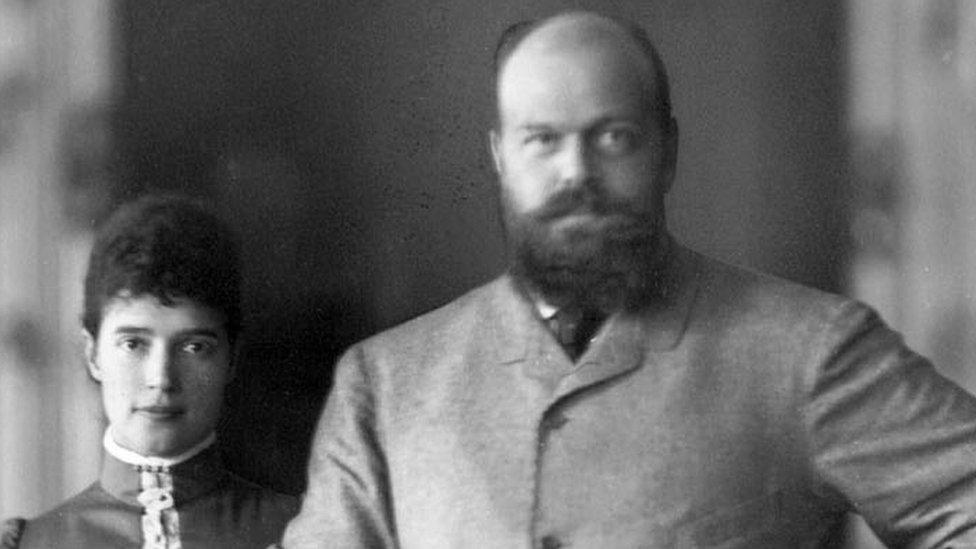New Tsar Alexander III statue sparks history debate
- Published
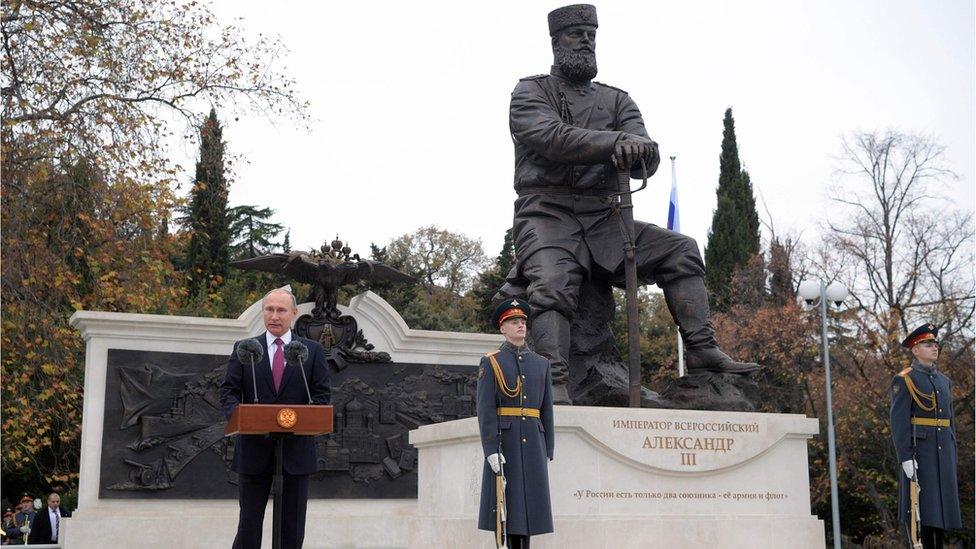
Vladimir Putin unveils the new Tsar Alexander III statue
A bronze monument to Tsar Alexander III featuring historical events has prompted discussion online on whether they occurred during the tsar's rule.
At a lavish ceremony in Crimea, Vladimir Putin unveiled the monument, but the debate over its historical inaccuracies drew more attention on social media than the content of the Russian president's speech.
Russia annexed Ukraine's Crimea peninsula in 2014 - a move condemned internationally.
The monument in Yalta was supposed to reflect Alexander III's achievements, but eagle-eyed internet users said the bronze monument was full of errors.
Alexander III was on the throne from 1881 to 1894.
The mural features Moscow's famous Tretyakov Gallery and the Historical Museum, but both were opened before Alexander III ascended the throne.
Some people have claimed that before Alexander became tsar, he lobbied the idea of the museum and played a crucial part in the development of the gallery.
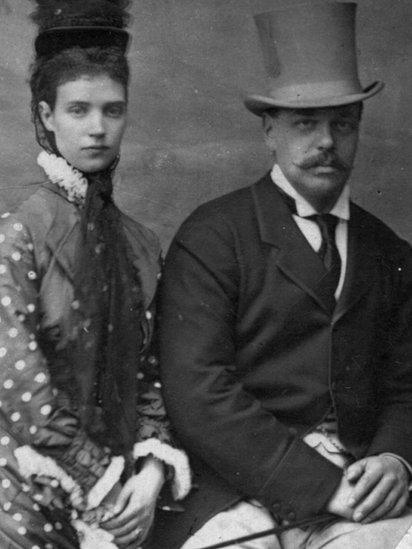
Tsar Alexander III (right), with his wife, Empress Maria Feodorovna, circa 1866
Also engraved on the mural are the novels of Fyodor Dostoyevsky, but the Crime and Punishment author died shortly before the start of Alexander III's reign.
A group of users on the telephone messaging app Telegram have argued that Dostoyevsky influenced Alexander III's personality and say they believe that the writer and the emperor-to-be had ongoing correspondence.
The mural also depicts the construction of the Trans-Siberian Railway that began in 1891 - three years before the death of Alexander III - and completed in 1916. It has been argued that Alexander III made the decision to start building the railway.
Some Telegram users said the statue is "another sloppy slapdash craftwork".
One Facebook user added: "The idea was good but the execution is… pompous, dead, unnatural and absurd."
While the monument commemorates the perceived highlights of Alexander III's reign, some Telegram users mentioned some of the tsar's low points such as the claim that he, "instructed the head of the Interior Ministry to deport Jews from Moscow".
A Moscow radio station website has posted a poll asking if the errors should be amended, with 54% of respondents saying yes.
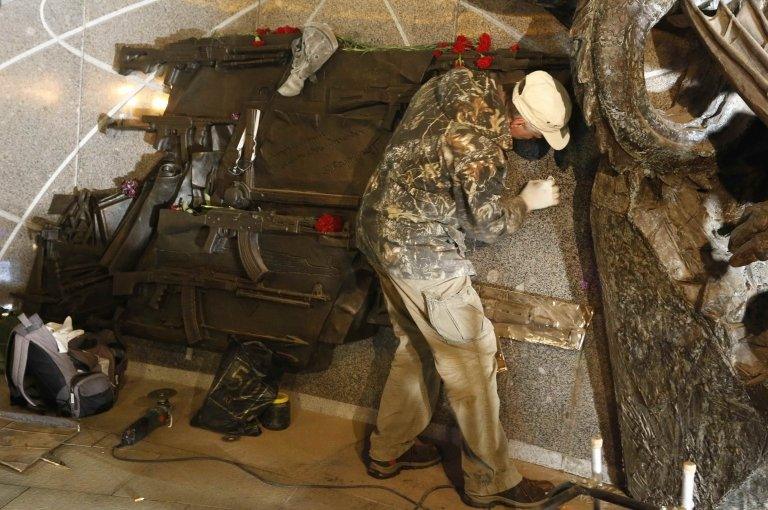
A worker uses an angle grinder to remove a Nazi-era weapon on the Kalashnikov statue in September
The sculptor of the monument, Andrey Kovalchuk, has dismissed criticism and defended his artwork saying: "It is entirely normal when a sculptor interprets it in his own way."
Regardless of whether the mural's depictions are historically accurate or not, the debate will continue on social media.
It's not the first time that Russian internet users have criticised mistakes on a statue.
In September, workers had to cut out a part of a new monument to the Russian inventor Mikhail Kalashnikov, as one of the weapons shown on the statue was a German-designed firearm used by the Nazis during World War Two.
By Paul Harrison, with additional reporting by BBC Monitoring
- Published22 September 2017
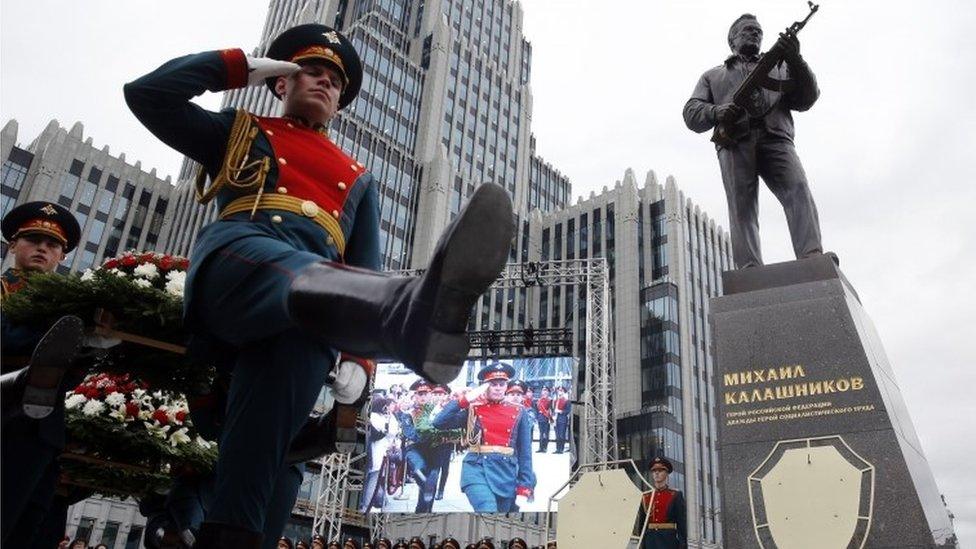
- Published29 March 2017
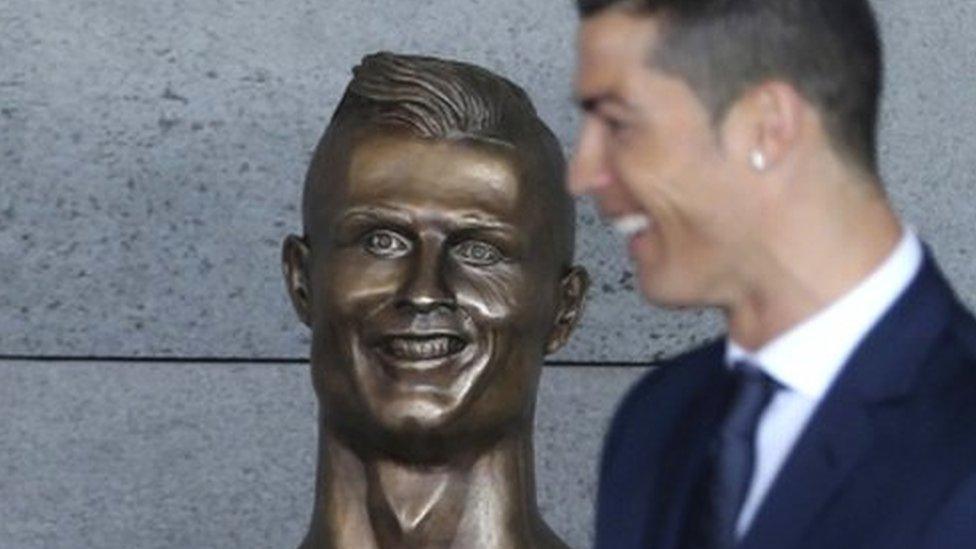
- Published21 March 2017
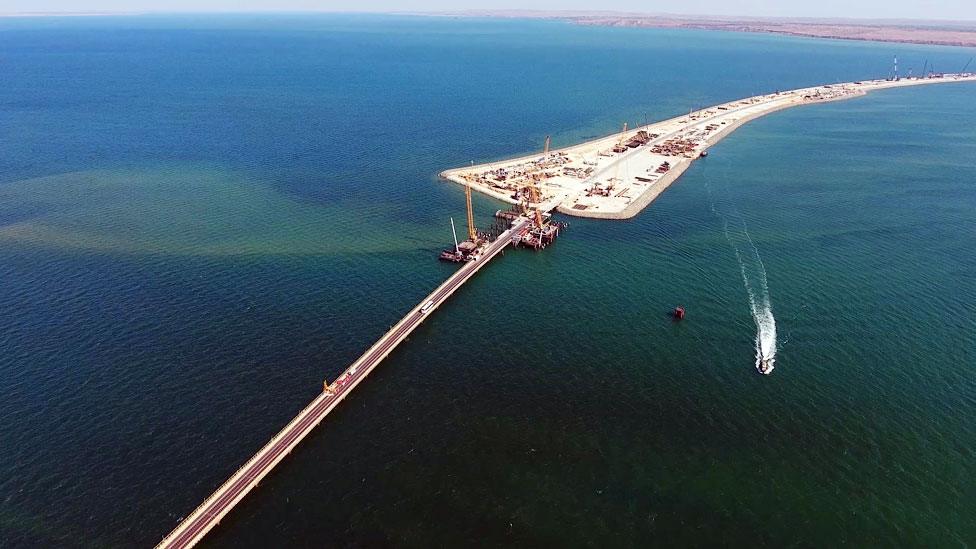
- Published3 November 2015
